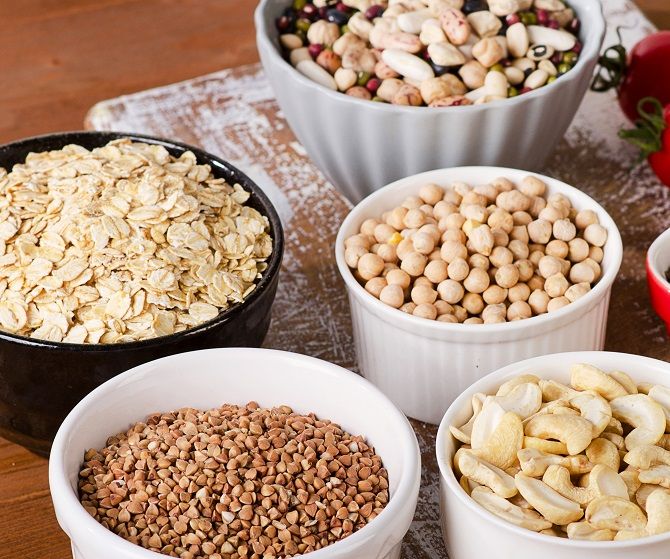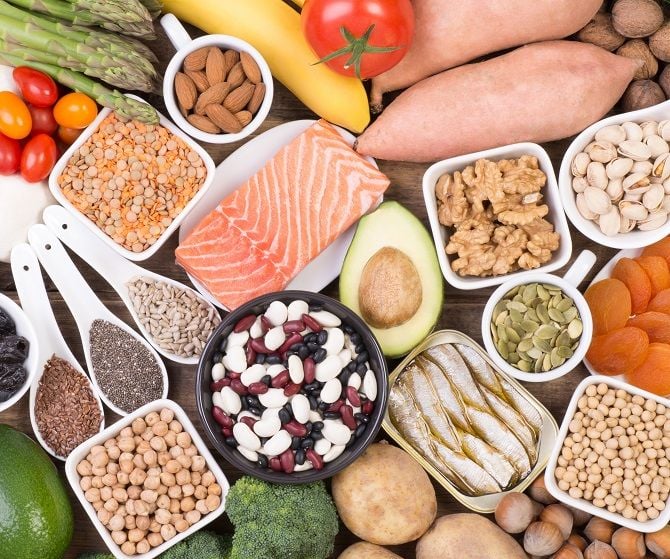By Gemma Sampson
Can your diet help prolong your life?
There's no doubt that we are living longer than our ancestors did, but are we ageing healthily? Dietitian Gemma Sampson investigates.
There's no doubt that we are living longer than our ancestors did, but are we ageing healthily?
While the environment and lifestyle factors, such as stress and physical activity, certainly contribute to longevity, diet also plays an important role in preventing some cancers and diseases - including cardiovascular disease, stroke, diabetes or heart disease.
These age-related conditions can impact not only how long we are likely to live for, but also what kind of quality of life we have.
In this guide, we'll take a look at how we can take a leaf out of the book of some of the world's longest-lived people and make diet and lifestyle changes that'll help us live a longer, healthier and happier life.
What can we learn from the world's longest-lived people?
People over the age of 65 from Okinawa in Japan are known for not only having one of the longest average life expectancies in the world, but also for their low levels of age-associated diseases and high numbers of centenarians living beyond the age of 100.
Many characteristics of the Okinawa diet are shared with other healthy dietary patterns, such as the traditional Mediterranean, 'Blue Zone' or Nordic diet. However, when it comes down to comparing the specific foods they eat, some healthy dietary patterns are polar opposites. This is evident in the case of dairy products which feature heavily in the Nordic diet but are low or completely absent in the Japanese Okinawa diet.
While our fast-paced modern society makes it difficult to completely mimic their diet and lifestyle, in this guide, we'll cover five dietary habits followed by Okinawa centenarians that may help support a longer, healthier life.
Eat the rainbow
The Okinawa diet contains a wide range of fruits and vegetables considered functional foods due to their rich antioxidant, carotenoid, vitamin and mineral content. These include purple sweet potatoes, which are rich in flavonoids, carotenoids, vitamin E and lycopene and bitter cucumbers (also known as goya), which have been found to stabilise and lower blood sugar levels for people with diabetes.
Most of us are familiar with the five-a-day concept and recognise we could eat a bit more fruit and vegetables. Brightly colourful fruit and veg is a good indicator that they are rich in antioxidants. Eating plenty of plant stanols and sterols found in fruits and vegetables stops the gut from absorbing cholesterol, which can help lower the bad cholesterol in your blood to keep your heart healthy.
The soluble fibre found in fruit and veg also helps mop up excess cholesterol, carrying it out of the body. Aim to eat a rainbow of brightly coloured fruits and vegetables every day to boost your antioxidant and phytonutrient intake, keep your bowels healthy and lower cholesterol levels.
Beans and pulses
Our western diets, which are typically higher in saturated fats, lower in vegetables and low in fibre are well associated with lifestyle related diseases that can limit our life expectancy and quality of life.
Interestingly, age expectancy in Okinawa has lowered for those under 65 as people adopt more Western dietary habits, consuming more meat while eating fewer beans, pulses and vegetables (Miyagi). Beans, lentils and pulses are a fantastic source of affordable plant-based protein and soluble fibre which is known to reduce cholesterol levels.
Fish and seafood
As excellent sources of omega-3 fats, regularly eating two to three servings of fish and seafood a week has been shown to benefit cognition helping to keep our minds sharp as we grow older.
Additionally, eating oily fish (think salmon, mackerel, pilchards, sardines and fresh - not tinned - tuna) on a regular basis is beneficial for heart health as well, keeping cholesterol levels down and minimising the risk of developing heart disease.
Soy
Soy products are rich in flavonoids and isoflavones and feature heavily in the Okinawa diet - as much as twice a day, usually in the form of tofu. Eating 15-20g of soy products a day can help to reduce your cholesterol levels.
The isoflavones in soy also play a role in limiting the development of heart disease. An additional cholesterol-lowering health benefit can be found by combining soy products with other plant proteins, plant stanols or soluble fibres.
Seaweed
Seaweed is a staple component of the Okinawa diet, thought to contribute to their longevity. Nutritionally, seaweed is low in calories and contains B vitamins, calcium, copper, iodine, magnesium, manganese, potassium, zinc, and vitamins A, C, and K.
It is rich in antioxidants and phytonutrients that can help lower the risk of heart disease and cancers and also has lignans, which have been found to lower LDL cholesterol.
There are many types of seaweed to experiment with, each with different uses, flavours and textures. Experiment with nori used in sushi, arame, dulse and kombu or kelp which is added to miso soup.
Cut back on calories
Another way to mimic the Okinawa is to aim to eat until you are 80% full and cut back on the number of calories you consume. The typical Okinawan diet has fewer calories than other areas in Japan, which may contribute to their longevity. They also typically gain very little excess weight over their lifetime, which could help minimise their risk of developing lifestyle-related diseases.
Eating less is a challenge for many people. Try using smaller plates to 'trick' your mind into thinking it's eating more than it is, then take more time while eating meals to allow your stomach to recognise it's full by chewing slowly and intentionally putting the fork down in between each bite.
And you?
Would you be willing to try the Okinawan diet, or is it too much of a far cry from your western staples?
If you've got any views or thoughts to share on how diet can impact life span, be sure to leave us a comment below, or get in touch via Twitter or Facebook.
And if you're looking for expert advice on how to improve your health with proper nutrition download our app or jump on the Push Doctor website and see a doctor online today:

